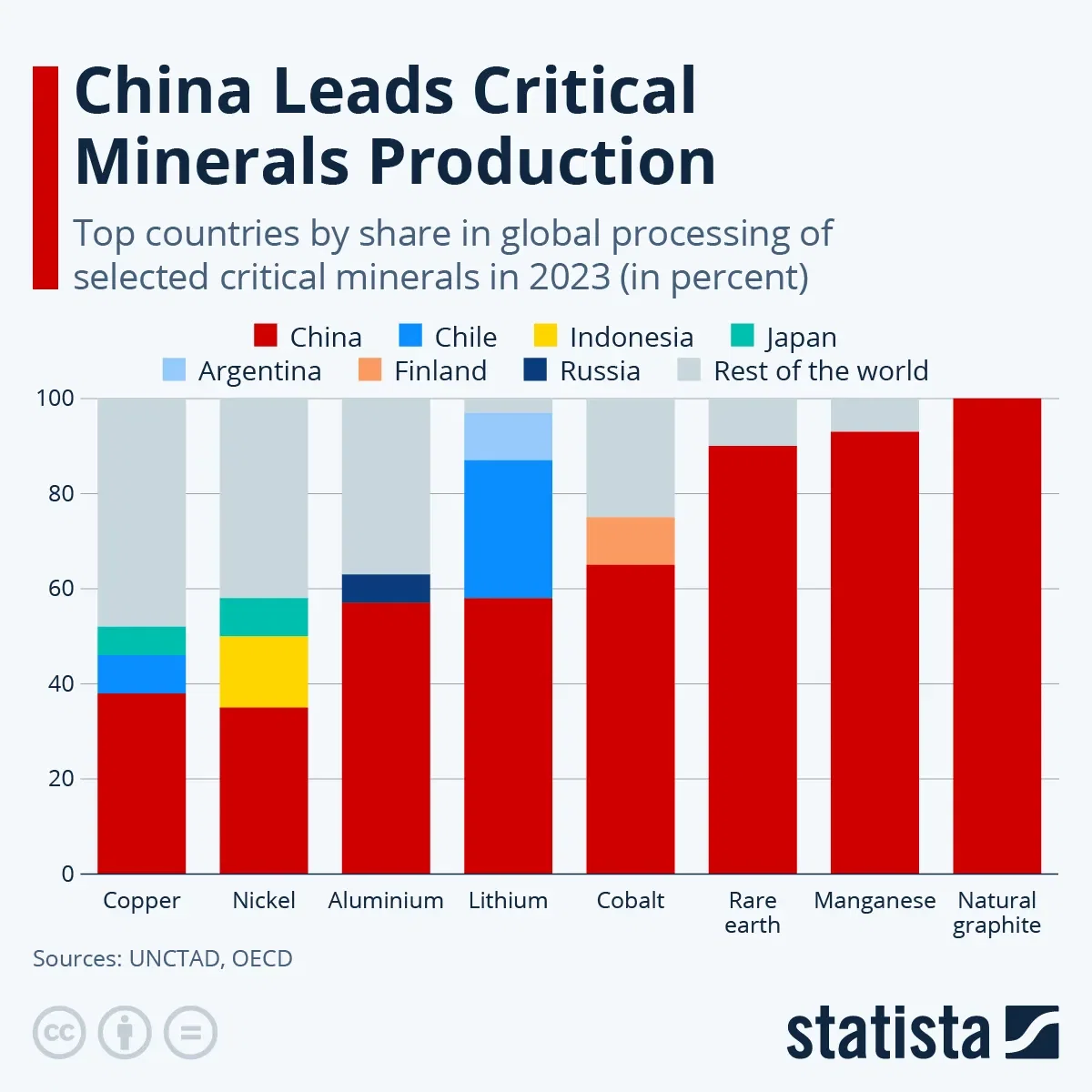Where Data Tells the Story
© Voronoi 2026. All rights reserved.

Demand for critical minerals such as copper, cobalt, lithium and nickel is soaring. These raw materials are used in a range of new technologies, from electric cars to wind turbines, which are becoming ever more important as the world moves towards a green transition. Experts forecast that this trend is set to accelerate, with global production of cobalt, graphite and lithium set to increase nearly six-fold between now and 2050 (World Bank).
Data recently published by the United Nations Conference on Trade and Development (UNCTAD) shows that China accounts for around two-thirds of the world's processing/refining capacity for critical minerals. While the extraction of these materials takes place all around the globe, China currently accounts for more than half of the world's refining of aluminum, lithium and cobalt, around 90 percent of that of rare earth metals and manganese and 100 percent of that of natural graphite. In addition, more than a third of the world's copper and nickel processing is carried out in China.
While China is in the lead for critical minerals production, the nation is losing its dominance. For example, the United States and Australia have increased their production of rare earths from 2010 onwards and most recently, Myanmar and Thailand have started to mine far more than before.